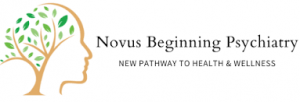Self-acceptance is a vital aspect of emotional well-being. It involves recognizing and appreciating yourself for who you are, including your strengths and areas that need improvement. However, achieving self-acceptance can sometimes feel like an uphill battle, especially in a world that often emphasizes perfection over authenticity. Keep reading to explore the various types of therapy that help with self-acceptance.
Cognitive-Behavioral Therapy
Cognitive-behavioral therapy (CBT) is one of the most widely used therapeutic approaches for addressing self-critical and negative thinking patterns. This structured form of therapy helps you identify and challenge distorted thoughts that may hold you back, such as feelings of inadequacy or perfectionism.
Acceptance and Commitment Therapy
Acceptance and commitment therapy (ACT) takes a different approach to negative emotions. Instead of trying to eliminate or avoid uncomfortable feelings, ACT focuses on accepting them as a natural part of life while committing to actions aligned with your values.
ACT is particularly helpful for individuals who feel trapped by their negative self-image or overwhelmed by their inner critic. It encourages you to practice mindfulness, becoming an observer of your thoughts rather than a victim of them. By reframing struggles as opportunities for growth, ACT helps you develop a more compassionate and accepting outlook on yourself.
Humanistic Therapy
Humanistic therapy, often associated with person-centered therapy developed by Carl Rogers, is deeply rooted in the belief that everyone has the potential for personal growth and self-actualization. This approach emphasizes self-exploration, self-expression, and unconditional positive regard.
The therapeutic relationship in humanistic therapy is unique because your therapist creates a non-judgmental and empathetic space for you to explore your thoughts and feelings in a safe manner. The focus is on self-discovery, helping you understand your experiences, emotions, and values on a deeper level.
Mindfulness-Based Therapy
Mindfulness-based therapy incorporates principles of mindfulness to help you stay grounded in the present moment. Rooted in traditions like mindfulness meditation, this approach aims to reduce self-judgment and heighten awareness of your inner thoughts and feelings without attaching to them.
This form of therapy is particularly beneficial for those who struggle with rumination or excessive self-criticism. Mindfulness techniques, such as deep breathing and body scanning, can help you recognize unhelpful thought patterns as fleeting experiences instead of truths.
Dialectical Behavior Therapy
Dialectical behavior therapy (DBT) is an evidence-based therapy originally developed to help manage extreme emotional states and self-destructive behaviors. Over time, it’s become widely used for those who struggle with emotional regulation or self-esteem issues.
DBT combines cognitive and mindfulness-based techniques to teach skills like distress tolerance, emotional regulation, and interpersonal effectiveness. DBT is beneficial for individuals who feel overwhelmed by intense emotions and want to develop more effective ways of managing them.
Each type of therapy explored in this listicle offers unique tools and insights to foster self-acceptance. Whether it’s CBT helping you reframe negative thoughts, ACT guiding you to value-based living, or mindfulness providing a calming presence, therapy can be a powerful ally in your self-growth journey. By incorporating these therapeutic approaches into your life, you can cultivate a sense of self that is not only accepting but thriving.






